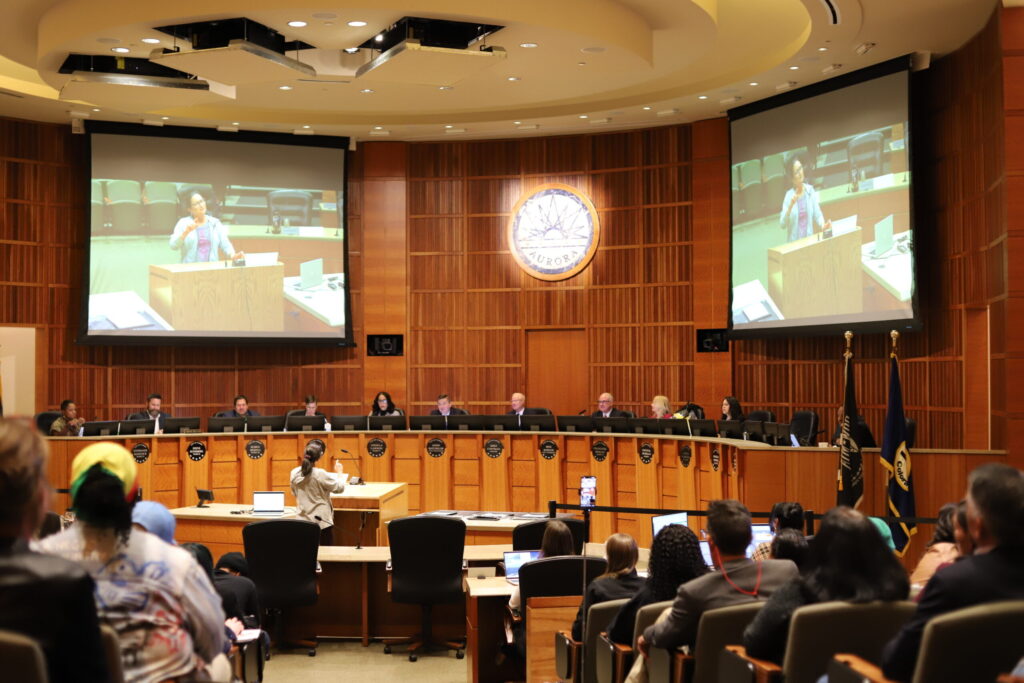Compromise struck on student testing bill

In a laborious Capitol battle over student testing between the “good enoughs” and the “not enoughs,” the former prevailed.
After digging through the weeds for months on the biggest education issue of this year’s legislative session, lawmakers finally emerged with compromise legislation that will reduce the number of assessments that students are required to take at Colorado’s public schools.
But it sure wasn’t easy.
“This assessment adventure has been like being on a runaway Tilt-a-Whirl on steroids, folks,” said Rep. Jim Wilson, R-Salida. Wilson is a former school superintendent who played a key role in the assessment reduction legislative process.
“This has been unbelievable. We’ve seen bills disappear. We’ve seen sponsors change. We’ve seen tempers flare. We’ve seen people offer up their first born.”
The result is House Bill 1323, which supporters tout as a testing-reduction bill that will ease assessment burdens on schools and students while also maintaining accountability and high education standards.
The bill is the product of multiple efforts by lawmakers this session to craft legislation that reduces K-12 student assessments and to create other reforms around key areas of the state’s standardized testing system.
The legislation comes as a result of calls on the part of frustrated and overwhelmed parents and teachers to overhaul the testing system. The effort to do so received overwhelming bipartisan support that produced strange bedfellows on the politically dicey issue of education.
The crafting of that legislation had its ups and down, complicated by fears on the part of education reformers who did not want to see accountability being compromised as a result of drastic testing cuts. At the same time, others felt legislative efforts to reduce testing didn’t go far enough.
At times, many politicos wondered whether anything would get done at all. That was apparent when both parties held hastily-called late session caucuses during a late night education debate that took place less than three days before the Legislature adjourned.
But a compromise bill indeed emerged, one that left supporters feeling good about getting something done, while leaving a handful of lawmakers bitter over legislation they felt wasn’t good enough.
In spite the problematic and “Tilt-a-Whirl on steroids” debate, a bill was accomplished. And, during a Capitol press conference on Thursday, Gov. John Hickenlooper indicated that he will sign the bill into law.

“It started out even as recently as Monday night (May 4) that it was looking like it was going to be a very steep hill to get to a consensus there,” Hickenlooper said. “They did it.”
What the bill does
The bill makes several changes to existing state standardized testing policies.
Under the bill, English and math tests will continue to be required for grades 3 through 9.
Tenth grade students will receive ACT Aspire college readiness testing. That’s a change from the currently-mandated Partnership for Assessment of Readiness for College and Careers tests, which are more time-consuming assessments than Aspire-based versions.
The ACT will continue to be required for 11th grade students. Other than that, there will be no state-mandated testing for 11th or 12th graders.A companion bill, Senate Bill 56, also reduces the frequency of social studies testing.
English language learners will not be required to take English tests for their first year of enrollment in a U.S. school. And when they test, their scores will not count toward teacher accountability measures for two years.
Also under the bill, test results from assessments administered for the 2014-2015 school year will not be used for the purposes of teacher and principal evaluations.
And parents can continue to opt their children out of state assessments, without consequence. That essentially was the sentiment behind Senate Bill 223, a student opt-out measure that sought to reinforce parents’ rights, which failed as a stand-alone bill.
The bill also creates a pilot program for districts that wish to use their own tests in place of state models. Those local assessments may be eligible to replace state versions so long as they get the go-ahead from the Colorado Department of Education. But districts that choose to pilot their own tests must continue to use state assessments in addition to their trial tests.
School readiness and READ Act assessments will be streamlined to simplify the assessment process, under the bill. And districts could request pencil-and-paper versions of state assessments.
The bill incorporates much of the recommendations that were made by the Standards and Assessments Task Force that the Legislature created last year. The task force analyzed the current testing system and determined that the number of state assessments should be reduced.
Lawmakers air differences
The compromise did not come easy during a session that saw as many as 11 testing-related bills introduced. They included Senate Bill 215, the initial, all-encompassing test reduction bill, which barely saw the light of day due to philosophical lines being drawn early in the process.That left House Bill 1323 and Senate Bill 257 as the remaining viable options for testing reduction legislation.
Although they shared some similarities, House Bill 1323 and Senate Bill 257 started out with key differences.
The House version incorporated much of the task force’s recommendations and was seen as more friendly to education reform groups that did not want to lose accountability and high standards in education testing. The Senate version moved the state closer to federal minimum standards and was championed by advocates who wanted as few tests as possible in schools.
Each bill was amended through the committee process to essentially mirror the other by the time the session ended. Lawmakers ended up keeping House Bill 1323 as the version that would be sent to the governor.
But the compromise left much to be desired for some Senate lawmakers. A key point of contention centered around ninth grade testing – some felt the testing was necessary, others wanted state testing requirements to be reduced as much as possible.
Those who feel the bill does not go far enough argue that it does not give enough power to local school districts and that the pilot assessment program contains too many hoops for administrators to jump through.
“We always say, ‘We have to do something,” said Sen. Vicky Marble, R-Fort Collins, who voted against the bill. “You now what? We don’t have to pass anything if it’s the wrong thing.”
Sen. Mike Merrifield, D-Colorado Springs, an original sponsor of Senate Bill 257, ended up voting for the legislation. Still, Merrifield lamented that the bill leaves students and teachers underwater.
“If you’re a six-foot man drowning in eight feet of water and someone said. ‘I can drop that to seven feet’, you’re still drowning,” Merrifield said.But others found compromise more acceptable.
Sen. Chris Holbert, R-Parker, who was a key player in the evolution of the testing legislation and who voted for the bill, told The Statesman in April that he would not support a bill that maintains ninth-grade testing.
Still, Holbert insisted that House Bill 1323 makes progress.
“Do we want to do nothing or do we want to do this?” Holbert asked during a May 5 Senate floor debate. “Do we want to decease our assessments as much as our political process will allow this year?”
Holbert said he would have liked to have done more. But he also acknowledged the political realities inside the Capitol, where lawmakers and the governor are not always in agreement on key issues.
“This is the lowest burden of testing we can get to governor’s desk that he will sign,” Holbert said.
Sen. Mike Johnston, D-Denver, a school-reform agent at the Capitol, told colleagues that the bill would reduce testing by more than 50 hours for young students and by 25 hours for high school students.
Johnston also said that 10th and 11th grade testing would be reduced from 80 calendar days to just two.
“I think there are some dramatic solutions that people should be supportive of,” Johnston said.
But things got interesting in the House on May 4, when both parties held sudden, late-night caucuses over divisions on logistics surrounding pilot testing programs. That led some to wonder whether the compromise that was brokered earlier in the day might fall apart.
The caucuses, which lasted about 45 minutes, took place just hours after a compromise that kept legislation alive was introduced during House and Senate committee hearings.
“This came close to falling apart almost every day of the session,” said House Speaker Dickey Lee Hullinghorst, D-Boulder.
Two days after the bill was nearly derailed, the House came back to give final approval to the legislation.
“At the end of the day, literally the last day of our session, we did it,” said Rep. Millie Hamner, D-Dillon.
– Twitter @VicVela1














